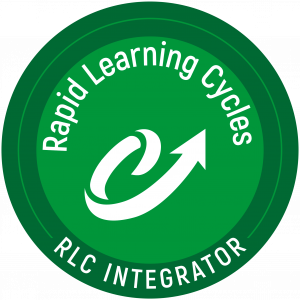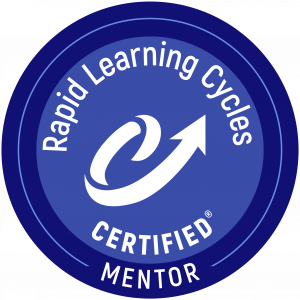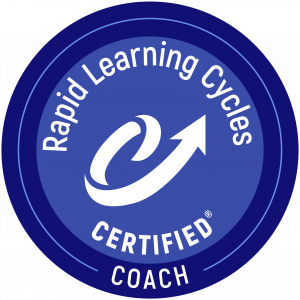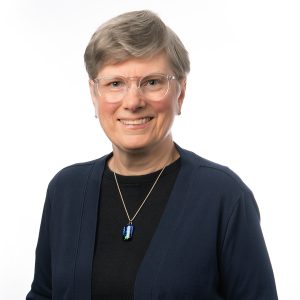Accelerate Product Development Across Your Organization
Integrate Rapid Learning Cycles into Your Product Development Process
A Four-Week Online Deep Dive into the Rapid Learning Cycles Framework to Explore Why It Delivers Results and How to Adapt It to Fit Your Product Development System
Benefits of Integrating Rapid Learning Cycles into Your PDP
Make better decisions across your organization.
Adapt RLCs to fit your industry and company culture.
Standardize on a shared approach to support global teams.
Capitalize on your organization's knowledge.
Reduce the risk that your changes will break the framework.
Past Participants Say . . .
"I have used Rapid Learning Training since 2017 and felt very comfortable with the knowledge and how to apply it. Through Advanced Certification classes, I have found deeper understanding of the principles behind the framework and how it could be tailored to fit my organization to use my
teams more efficiently."
Konstantin Derman, Engineering System Manager Group Leader II, Werfen North America
"Through the years, I gained quite some experience driving the quality of project teams. But with the Advanced Certification Classes, I got even more insight into the advice I often give. This will help me coach better"
Ingvar Hendriks, Freelance Project Manager
HIM | Hendriks Interim Management
Maximize the value of your teams' "fuzzy front end" by learning how to make Rapid Learning Cycles part of your product development system.
This series, consisting of four one-hour online classes will help you develop and test adaptations of Rapid Learning Cycles so that you can integrate it more thoroughly into your organization's product development system.
We built this online class to give you the knowledge you need to make wise decisions about how to tailor Rapid Learning Cycles to fit your industry, your company culture and your teams.
- Why Rapid Learning Cycles has evolved the way that it has.
When you know why something works, you know where it can be adapted without losing any of the benefits. We'll walk through the evolution of the framework. - What we have already tried — what became part of our standard and what we abandoned because it didn't work.
We'll share our failures as well as our successes — and explain how that predicts which changes will work, and which ones have unintended side effects to avoid. - The common underlying foundation that underpins lean, agile and Rapid Learning Cycles.
We'll review the fundamental principles of queueing theory as expressed through the Rapid Learning Cycles framework to explain what you need to do to set up the environment for success, what's required for the framework to hang together, and where you have flexibility. - Common modifications and variations that have already been proven to work.
We already know how to adapt Rapid Learning Cycles for small teams, very large teams, research teams working on portfolios of small projects, and teams using the framework for strategic initiatives. We know a lot about how to integrate Rapid Learning Cycles into a phase gate PDP. These adaptations can inspire your own. - How to design and test your own variations.
When you're developing a standard product development process, you need to test changes in small ways before applying the change to every project. We'll share our thought process for testing changes, so that you know how to test your own.
Video Lessons Supplemented with
Group Coaching and Discussion
Video Lessons with Unlimited Viewing
This course uses a "flipped classroom" model — the most effective teaching method for online adult learners. All core content is delivered via professional videos, with each lesson broken up into short modules that can be viewed when it is convenient for you, and reviewed as often as you like.
You will have the opportunity to get live coaching on a change to the Rapid Learning Cycles framework that you would like to test. When you know why the framework works and how to run a good test, you can be confident that you will be able to make adaptations that increase the value of Rapid Learning Cycles for your organization.
Group Coaching
and Discussion
Networking with Advanced Peers
Through the classes, you'll connect with a select group of peers who are working towards similar goals with Rapid Learning Cycles in their organizations. Focused discussions will provide opportunities to share experiences and build connections that persist after the class.
Live Session Dates and Times
Our next series for Region A – Europe & Eastern Americas
will be scheduled in the fall of 2023.
We are compiling a waiting list of people from other regions who would like a public class.
Please contact us to let us know you're interested.
Who Should Attend This Online Class?
When an organization has decided to use Rapid Learning Cycles wherever it makes sense, then it's time to think seriously about how that will work for the rest of the product development system. This class would be especially valuable for:
- Product Development Process Owners who are responsible for training and coaching project leaders, sustaining and improving the standard Product Development Process, and ensuring adequate compliance with standards.
- Rapid Learning Cycles internal coaches and mentors who will encounter a variety of situations within the teams they're assisting, and need to be prepared to make good recommendations.
- Project Leaders with large teams or working in regulated industries who already know they will need to tailor the Rapid Learning Cycles framework to fit their projects.
This class will be especially valuable for anyone who mentors other team members around how to use Rapid Learning Cycles, as they are likely to encounter a wide variety of questions about how to make Rapid Learning Cycles work well for a team with specific challenges.
The Lean and Agile Roots of the Framework
The Rapid Learning Cycles framework started as a synthesis of Agile Software Development with Lean Product Development — but didn't stay there. We'll share the impetus behind the work to define a repeatable process.
The Framework from Idea to Repeatable Results
We'll go step-by-step through the evolution of the framework, from its early days as a form of Scrum to its final mature state.
Queueing Theory: The Common Thread
We'll explain the basics of queueing theory — the common thread between lean, agile and Rapid Learning Cycles. We'll trace this thread through the framework, showing how small batches of knowledge creation turn into better decisions and fewer long, slow rework loops.
Known Adaptations and Why They Work
We'll share the adaptations for small and large teams, for Advanced R & D and innovation teams, and for using Rapid Learning Cycles to support the rollout of a corporate initiative. We'll use these adaptations to explain how to develop and test your own.
Class Options
Course Only:
Integrate RLCs
- Permanent access to all course videos for unlimited playback
- Four live group coaching and discussion sessions
- Exclusive detailed checklist for running a test of an adaptation
- Pre-tested adaptations for large and small teams and portfolios of small projects

Recommended
Certification Package
- Course package discount vs. purchasing certification components individually
- Includes all course benefits, plus:
- Immediate access to RLC Project Evaluation
- Accelerated access to materials that can be adapted, upon completion of the RLC Project Evaluation
- Guaranteed registration in all courses in this series

Enterprise-Wide Certification Package
- Includes all Certification Package benefits, plus:
- Company-wide license with editable RLC Materials
- Examples taken from the challenges faced by your own company
- Customized case study taken from your industry

Your Co-Instructors:

Katherine Radeka
CEO and Founder
Rapid Learning Cycles Institute

Kathy Iberle
Iberle Consulting, Inc.
In this course, you’ll have the opportunity to learn directly from Katherine Radeka.
Katherine has helped product development teams around the world, with a special focus on climate tech, renewable energy and medical devices. She's the person to call when the world needed your solutions yesterday.
She is also the best person to call if you need to pull together an international team to support global adoption of Rapid Learning Cycles.
Katherine is the author of The Shortest Distance Between You and Your New Product: How Innovators Use Rapid Learning Cycles to Get Their Best Ideas to Market Faster and co-author with longtime collaborator Kathy Iberle of When Agile Gets Physical: How to Use Agile Principles to Accelerate Hardware Development.
Kathy Iberle was the first person certified as a Rapid Learning Cycles Certified® Advisor, and has been an affiliate with Rapid Learning Cycles Institute from the beginning.
Kathy has a strong interest in effective problem-solving methods that drive data-driven decision making, and she played a key role in developing these aspects of the Rapid Learning Cycles framework. She is the co-author of When Agile Gets Physical: How to Use Agile Principles to Accelerate Hardware Development.
Kathy’s background is in mixed hardware/software engineering with a focus on quality engineering. She has worked with a wide range of products – everything from printers to early web applications to cardiology and scientific instruments. In the course of her adventures in the high-tech world, she’s developed or improved many types of development processes for teams both large and small.
Kathy lives in Vancouver, Washington where she runs her own consulting business and enjoys hiking, camping, and snowshoeing in her spare time.
